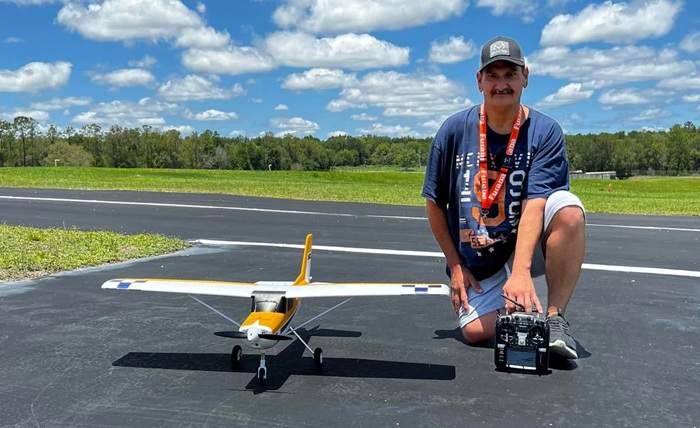
Flying an RC airplane can be an exhilarating hobby, offering a mix of engineering, skill, and pure enjoyment. Whether you are a beginner or a seasoned pilot, ensuring your RC airplane is properly maintained is crucial for both safety and optimal performance. Neglecting maintenance can lead to unexpected malfunctions, crashes, or reduced lifespan of your aircraft. This guide will walk you through essential maintenance practices to keep your RC airplane flying safely and smoothly.
Pre-Flight Inspections Are Essential
Before each flight, a thorough inspection of your RC airplane is a must. This simple routine can prevent most common issues from escalating. Start by checking the airframe for any visible damage, cracks, or loose components. Pay particular attention to the wings, fuselage, and tail assembly. Even minor cracks can compromise structural integrity during flight.
Next, inspect the control surfaces, including the ailerons, rudder, and elevator. Ensure they move freely and respond correctly to your transmitter inputs. Loose or misaligned control surfaces can result in poor handling or complete loss of control. Check the hinges and linkages for wear and tear and tighten any loose screws or bolts.
Finally, examine the landing gear for damage or bending. The landing gear absorbs the shock during takeoff and landing, so any weakness can lead to a crash or difficulty in controlling the airplane on the ground.
Battery Care and Management
Most RC airplanes today are powered by lithium polymer (LiPo) batteries, which require careful handling. Always charge your batteries according to the manufacturer’s instructions and never leave them unattended while charging. Avoid overcharging or discharging below the recommended voltage, as this can reduce battery life or even cause fires.
Inspect the battery pack regularly for swelling, leaks, or damaged connectors. Swollen batteries are a sign of internal damage and must be replaced immediately. Store batteries in a cool, dry place, preferably in a fireproof container, and avoid exposing them to direct sunlight or high temperatures. If you need a replacement or advice, your local RC hobby store is an excellent resource for finding the right batteries and accessories.
During flights, monitor battery voltage to prevent sudden power loss, which could lead to crashes. Many modern transmitters offer telemetry systems to alert you when the battery is low, providing an extra layer of safety.
Motor and Propeller Maintenance
The motor and propeller are the heart of your RC airplane, and proper maintenance is critical for smooth performance. Inspect the propeller for cracks, chips, or signs of wear. Even a small nick in the propeller can cause vibrations, reduce efficiency, or damage the motor. Replace damaged propellers immediately and ensure the propeller is securely fastened to the motor shaft.
Brushless motors require minimal maintenance, but you should keep them clean and free of dust or debris. Use compressed air to remove dirt, and occasionally check the motor bearings for smooth operation. For brushed motors, monitor brush wear and clean the commutator to maintain optimal performance.
Electronics and Connections
Your RC airplane relies on a network of electronic components to function correctly, including the receiver, servos, and speed controller. Inspect all wiring and connectors for damage, fraying, or corrosion. Ensure all connections are tight and secure. Loose or damaged wires can cause intermittent failures or total loss of control during flight.
Servos, which control the movement of your airplane’s control surfaces, should be tested for proper operation before each flight. Listen for unusual noises and check for sluggish or jerky movements, which may indicate wear or a failing servo.
Additionally, consider using heat shrink tubing or electrical tape to protect exposed wires from friction and vibration. Keeping your electronics in good condition is essential for reliable performance and safety.
Cleanliness and General Care
Keeping your RC airplane clean may seem minor, but it plays a significant role in longevity and performance. Dirt, dust, and moisture can accumulate in moving parts, electronics, and airframe joints, leading to corrosion or impaired function. After each flight, wipe down the airplane with a soft, dry cloth and remove any debris from the propeller, motor, and landing gear.
If your airplane flies in wet or muddy conditions, it’s important to clean it thoroughly and dry all components to prevent rust or electrical shorts. Use a soft brush to remove debris from tight areas, and avoid using harsh chemicals that could damage the airframe or electronics.
Storage and Transport
Proper storage and transport are critical to prevent damage when your RC airplane is not in use. Always store your airplane in a cool, dry place away from direct sunlight. Use a carrying case or protective bag to prevent scratches, dents, or accidental bending of the wings.
If transporting your airplane in a vehicle, secure it properly to avoid movement that could damage fragile parts. Remove batteries during transport to prevent accidental activation of the motor or electronics.
Regular Maintenance Schedule
Establishing a regular maintenance schedule is one of the best ways to keep your RC airplane in top condition. Set aside time after every few flights to inspect, clean, and perform minor repairs. Regular maintenance prevents small problems from escalating into costly repairs or crashes.
Keep a log of maintenance activities, noting any parts replaced, repairs made, and flight performance. This record helps you track the health of your airplane over time and can alert you to recurring issues before they become critical.
Conclusion
Maintaining an RC airplane requires attention to detail, consistency, and a proactive approach. By performing pre-flight inspections, caring for batteries, maintaining motors and electronics, and keeping your airplane clean and properly stored, you can enjoy safe and smooth flights every time. Proper maintenance not only enhances the lifespan of your RC airplane but also ensures a more enjoyable and worry-free flying experience.
With careful upkeep and mindful flying habits, your RC airplane can provide countless hours of excitement while remaining reliable and safe in the skies. Remember, a well-maintained airplane is not just a hobbyist’s pride—it’s a safety measure that protects both your investment and your enjoyment.



